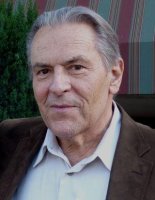I doubt this. Bothers me about you is you never give cites .
Be that as it may, the haldane effect says that less oxygen present in high-altitude displaces less carbon dioxide and so there is actually more carbon dioxide rather than less in the body. That's what Ray says.
http://onlinelibrary.wiley.com/stor...ga&s=56b8fc2c7fa3f1fe8ea7fe57b41ea88e10ca8f83
It is evident that a striking degree of acclimatisation was actually obtained, as on the fourth day J. S. H. could easily carry on with gas analyses, etc., and even work on the ergometer, ,for not only did the hemo- globin percentage fail to rise (since in both subjects it was lower on the fourth than the first day), but there was no lasting lowering of the alveolar CO2 pressure, which was almost as high on the morning of the fourth day as on that of the first day
Cites? I lived in the mountains and tested blood gases hundred times. Also this is fact, with gazzillion cites.



